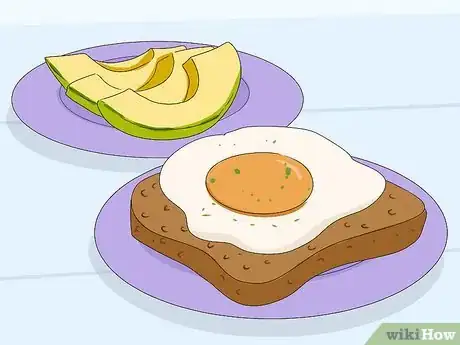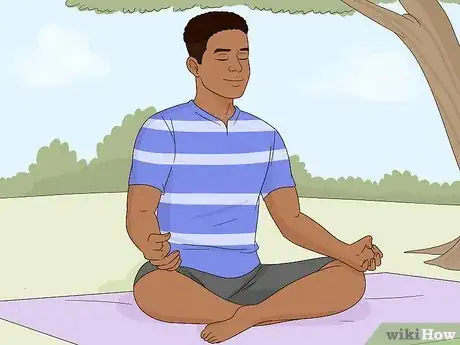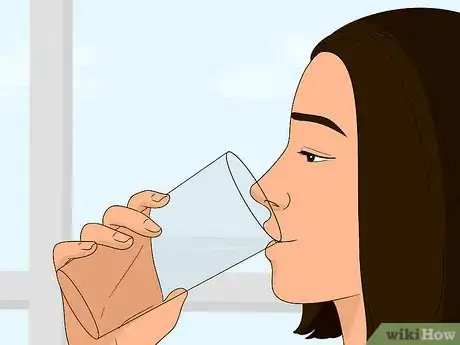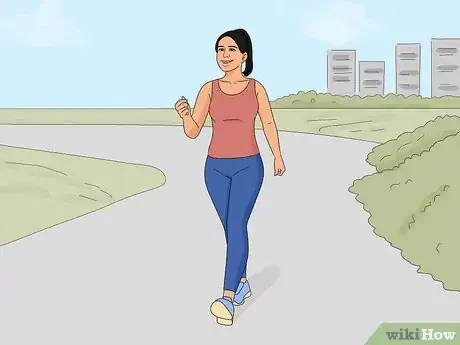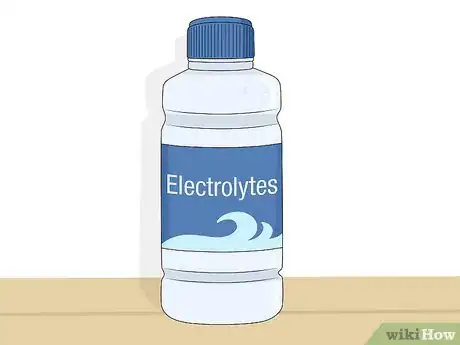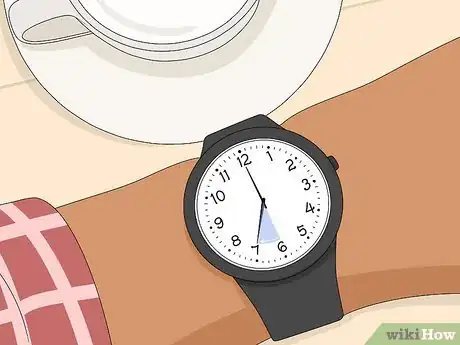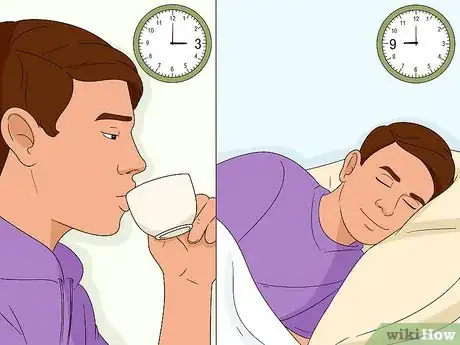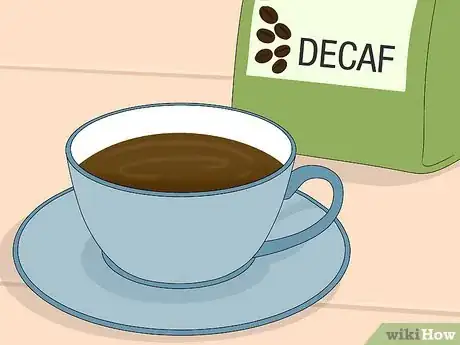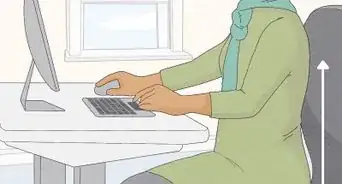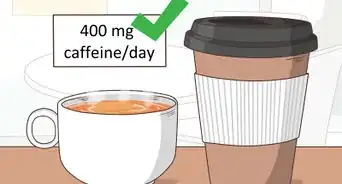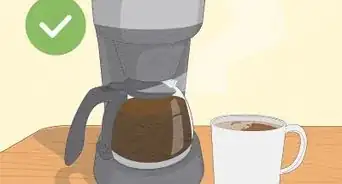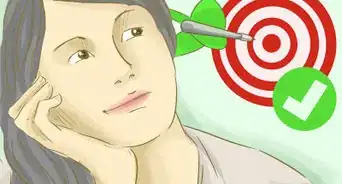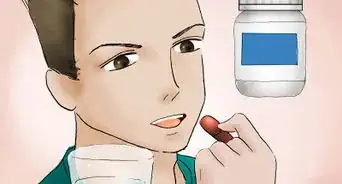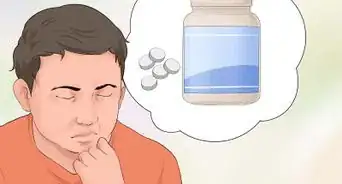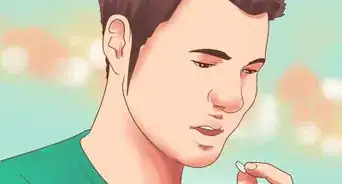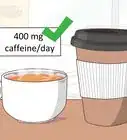This article was co-authored by Andrea Rudominer, MD, MPH and by wikiHow staff writer, Jessica Gibson. Dr. Andrea Rudominer is a board certified Pediatrician and Integrative Medicine Doctor based in the San Francisco Bay Area. Dr. Rudominer has over 15 years of medical care experience and specializes in preventive health care, obesity, adolescent care, ADHD, and culturally competent care. Dr. Rudominer received her MD from the University of California, Davis, and completed a residency at the Lucile Packard Children's Hospital at Stanford University. Dr. Rudominer also has an MPH in Maternal Child Health from the University of California, Berkeley. She is a Member of the American Board of Pediatrics, a Fellow of the American Academy of Pediatrics, a Member and Delegate of the California Medical Association, and a Member of the Santa Clara County Medical Association.
There are 9 references cited in this article, which can be found at the bottom of the page.
This article has been viewed 40,045 times.
If you're like most people, you look forward to your morning coffee or afternoon energy drink for a little pick me up. But have you ever had one of those days where you had just a little too much? If your heart is pounding, your hands are jittery, or your body feels restless, you're probably wondering how to get the caffeine out of your system fast. While you can't metabolize the caffeine any quicker, there are things you can do to manage these uncomfortable side effects.
Steps
Expert Q&A
-
QuestionWhich herbal supplements can I take to boost my energy?
 Andrea Rudominer, MD, MPHDr. Andrea Rudominer is a board certified Pediatrician and Integrative Medicine Doctor based in the San Francisco Bay Area. Dr. Rudominer has over 15 years of medical care experience and specializes in preventive health care, obesity, adolescent care, ADHD, and culturally competent care. Dr. Rudominer received her MD from the University of California, Davis, and completed a residency at the Lucile Packard Children's Hospital at Stanford University. Dr. Rudominer also has an MPH in Maternal Child Health from the University of California, Berkeley. She is a Member of the American Board of Pediatrics, a Fellow of the American Academy of Pediatrics, a Member and Delegate of the California Medical Association, and a Member of the Santa Clara County Medical Association.
Andrea Rudominer, MD, MPHDr. Andrea Rudominer is a board certified Pediatrician and Integrative Medicine Doctor based in the San Francisco Bay Area. Dr. Rudominer has over 15 years of medical care experience and specializes in preventive health care, obesity, adolescent care, ADHD, and culturally competent care. Dr. Rudominer received her MD from the University of California, Davis, and completed a residency at the Lucile Packard Children's Hospital at Stanford University. Dr. Rudominer also has an MPH in Maternal Child Health from the University of California, Berkeley. She is a Member of the American Board of Pediatrics, a Fellow of the American Academy of Pediatrics, a Member and Delegate of the California Medical Association, and a Member of the Santa Clara County Medical Association.
Board Certified Pediatrician & Integrative Medicine Doctor Panax Ginseng and Rhodiola Rosea are some herbal supplements that can be energizing but do not contain caffeine. You can also use Ashwagandha. It is a herb that helps alleviate stress.
Panax Ginseng and Rhodiola Rosea are some herbal supplements that can be energizing but do not contain caffeine. You can also use Ashwagandha. It is a herb that helps alleviate stress. -
QuestionAre there any aromatherapy blends that can be stimulating and invigorating?
 Andrea Rudominer, MD, MPHDr. Andrea Rudominer is a board certified Pediatrician and Integrative Medicine Doctor based in the San Francisco Bay Area. Dr. Rudominer has over 15 years of medical care experience and specializes in preventive health care, obesity, adolescent care, ADHD, and culturally competent care. Dr. Rudominer received her MD from the University of California, Davis, and completed a residency at the Lucile Packard Children's Hospital at Stanford University. Dr. Rudominer also has an MPH in Maternal Child Health from the University of California, Berkeley. She is a Member of the American Board of Pediatrics, a Fellow of the American Academy of Pediatrics, a Member and Delegate of the California Medical Association, and a Member of the Santa Clara County Medical Association.
Andrea Rudominer, MD, MPHDr. Andrea Rudominer is a board certified Pediatrician and Integrative Medicine Doctor based in the San Francisco Bay Area. Dr. Rudominer has over 15 years of medical care experience and specializes in preventive health care, obesity, adolescent care, ADHD, and culturally competent care. Dr. Rudominer received her MD from the University of California, Davis, and completed a residency at the Lucile Packard Children's Hospital at Stanford University. Dr. Rudominer also has an MPH in Maternal Child Health from the University of California, Berkeley. She is a Member of the American Board of Pediatrics, a Fellow of the American Academy of Pediatrics, a Member and Delegate of the California Medical Association, and a Member of the Santa Clara County Medical Association.
Board Certified Pediatrician & Integrative Medicine Doctor Several aromatherapy blends can be stimulating and invigorating, such as those with peppermint, ginger, rosemary, eucalyptus, and tea tree oils.
Several aromatherapy blends can be stimulating and invigorating, such as those with peppermint, ginger, rosemary, eucalyptus, and tea tree oils.
References
- ↑ https://www.psycom.net/anxiety-and-caffeine
- ↑ https://rightasrain.uwmedicine.org/body/food/too-much-caffeine
- ↑ https://my.clevelandclinic.org/health/articles/15496-caffeine-how-to-hack-it-and-how-to-quit-it
- ↑ https://www.nationalacademies.org/news/2004/02/report-sets-dietary-intake-levels-for-water-salt-and-potassium-to-maintain-health-and-reduce-chronic-disease-risk
- ↑ https://rightasrain.uwmedicine.org/body/food/too-much-caffeine
- ↑ https://rightasrain.uwmedicine.org/body/food/too-much-caffeine
- ↑ http://pitjournal.unc.edu/article/improving-college-exam-performance-l-theanine-and-caffeine
- ↑ https://my.clevelandclinic.org/health/articles/15496-caffeine-how-to-hack-it-and-how-to-quit-it
- ↑ https://www.psychologytoday.com/us/blog/sleep-newzzz/201312/new-details-caffeine-s-sleep-disrupting-effects
- ↑ https://my.clevelandclinic.org/health/articles/15496-caffeine-how-to-hack-it-and-how-to-quit-it
- ↑ Andrea Rudominer, MD, MPH. Board Certified Pediatrician & Integrative Medicine Doctor. Expert Interview. 13 April 2020.
- ↑ Andrea Rudominer, MD, MPH. Board Certified Pediatrician & Integrative Medicine Doctor. Expert Interview. 13 April 2020.
- ↑ Andrea Rudominer, MD, MPH. Board Certified Pediatrician & Integrative Medicine Doctor. Expert Interview. 13 April 2020.
- ↑ https://www.fda.gov/consumers/consumer-updates/spilling-beans-how-much-caffeine-too-much
- ↑ https://www.ncbi.nlm.nih.gov/books/NBK430790/
